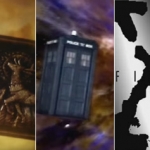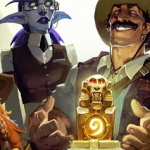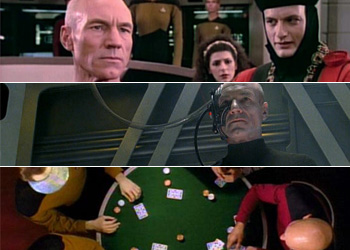
Part 1 of this little ditty suggested three episodes from the original Star Trek series you should watch to understand the substance behind Star Trek that has earned such a rabid, multi-generational fandom. In preparation for the upcoming Star Trek Into Darkness, let’s find episodes of Star Trek: The Next Generation that showed the same dedication to that certain something that makes Trek so special. Set 100 years after the original series, this show has cooler looking aliens and a bigger spaceship. But it managed to stay true to the original Star Trek mission by exploring the human condition, and whether humanity really can tend toward a more perfect existence.
“Encounter at Farpoint”
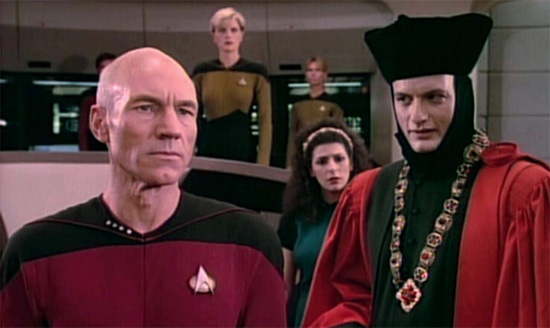
The basic idea: In the pilot episode, a shakedown cruise takes the new crew to a planet that seems to have everything it needs. But Q, a super powerful entity, wants to put Picard and company on trial. The charge: humanity is an unworthy species — with all our violence and bigotry and capricious self interest and whatnot — so we should be sent back to the primordial goo from whence we came.
Why you should watch it: This is a good pilot episode because it sets the tone for the rest of the series. The all powerful being judging humanity was by this time an overused plot devise in the Star Trek franchise. But they got it right on occasion, and “Farpoint” shows that by now the kinks in the format had been worked out.
There are plenty of issues considering this was the pilot, when writers and actors are still trying to find their place in the fictional universe. Still, you get a good introduction to the crew, and see how this captain approaches problem solving differently than Kirk. The main takeaway from this pilot episode is that, like the original series before it, next generation’s exploration of space is actually an exploration of human potential.
“The Best of Both Worlds”
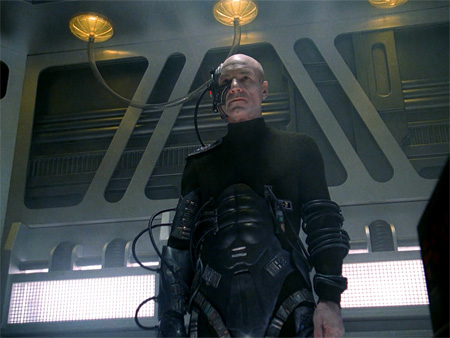
The basic idea: The Borg are one of the great villains of the Star Trek franchise. They are a cyborg society that assimilates everything — living things, machines, everything — into its collective existence. Combine the Terminator with a bunch of locusts and you’ve got the Borg. You could also think of them as Star Trek‘s answer to the zombie craze (before it became a craze). It’s up to the Enterprise to stop the Borg from assimilating Earth.
Why you should watch it: For one thing, it’s got space zombies. But in this two-part episode, Picard gets captured and assimilated. His crew has to choose between saving Earth and saving their Captain. This episode will have you questioning the value of individuality, the value of society… the meaning of life, perhaps. Also, it’s got space zombies.
“Darmok”
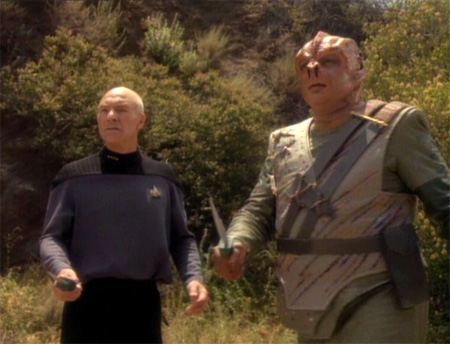
The basic idea: Despite the existence of universal translators, the Federation has never been able to communicate properly with a certain alien race. Nevertheless, Picard and his counterpart from that alien race must figure out how to communicate if they are to survive.
Why you should watch it: Have you ever had an argument with your significant other, been frustrated that he or she is so pigheaded, and ended the encounter in frustration that he or she just can’t see reason, only to think about it later and realize that you both were right (and maybe also both wrong) all along, and if only you both would have taken the time to see things from each other’s perspective you both would have learned something? This happens to aliens, too. But if you stick to it, despite the frustrations, you will see each other’s perspective, and be richer for it. Just like Picard and Dathon at El-Adrel.
“The Inner Light”
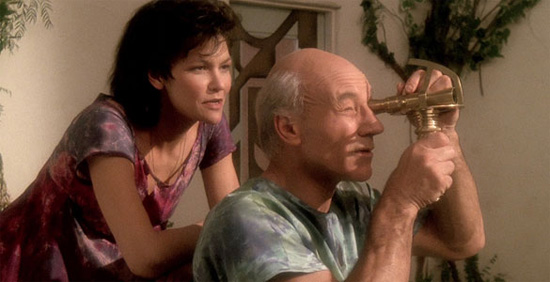
The basic idea: An alien space probe projects its story into Picard’s brain, forcing him to live a lifetime thinking he’s a member of the alien society.
Why you should watch it: “The Inner Light” gets points for good storytelling, originality, and exploring a central Star Trek theme: there is always something to learn from other people. The story itself is interesting, as we see Picard raising his alien family, thinking he is one of this society, and learning why that society would bother to send out a probe into space that can take over people’s brains, instead of using that technology to rob a bank or something. “The Inner Light” also asks why we explore. What’s the point of climbing the mountain, or crossing the sea or, the question Trekkies are most likely to ask, the point of going into space? Why? Why indeed.
“The Drumhead”
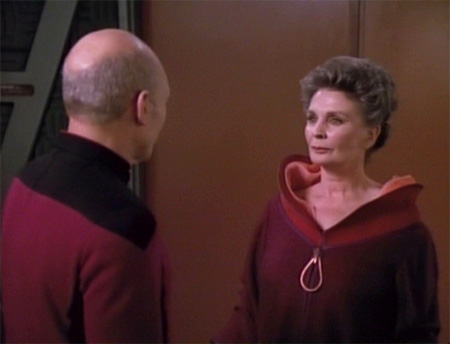
The basic idea: An obsessed investigator looks for a Romulan spy. Her ruthless witch-hunt gets out of control, forcing Picard to bring everyone to their senses with his unique “What the hell are you thinking about, you bunch of sheep?” style of leadership.
Why you should watch it: One of the great evils of the human endeavor is group think, otherwise known as mob psychology. It is so effective — and destructive — because it avoids reason and appeals to emotion (usually fear) to convince people to do things they otherwise wouldn’t do. It can lead to institutions like slavery that take over entire societies, or — like McCarthyism — can last just a few years and affect a specific segment of society. It is so pernicious most of us have engaged in it at some time (ever gossiped, or allowed a bully to do his thing, or pretended you liked something because everyone else likes it?) without even realizing it.
But we can overcome the hold it has on us if we have the courage to think for ourselves. In this particular episode, we see the additional responsibility that people in power have when it comes to preventing mob psychology from ruining the ideals an open society holds dear.
“All Good Things”
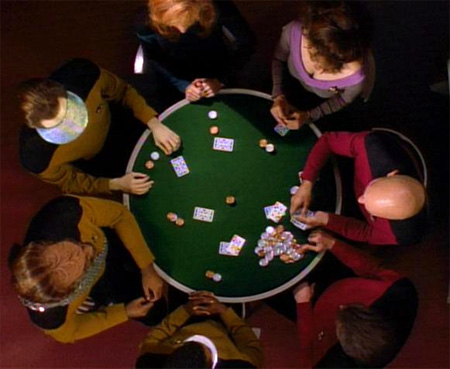
The basic idea: The series finale finds a retired Picard suffering from dementia. But it turns out he is actually traveling back and forth through time, not losing his mind, and that this time-jumping thing is being engineered by Q. When Q explains that the trial from the pilot episode never ended and is still ongoing, Picard must rally his friends from the past, the present, and the future to prevent the annihilation of the Universe itself.
Why you should watch it: As I said before, the idea that all-powerful Godlike beings would sit in judgment of the human race is an overused plot device in the Star Trek franchise. Still, if done right, it works pretty well. In this case, the plot device serves as an excellent bookend for the series, since it basically picks up where the pilot left off. And the point of this episode is well taken: the trial never ends. Another way to say it is that life is a journey. Or you could say life is like a box of chocolates (you never know what you’re going to get). However you put it, this is a central truth of human existence: we keep going. Despite the mistakes and difficulties, we do our best, we keep going, and over time, we get better. That, as Q would tell you, is what makes us human.



